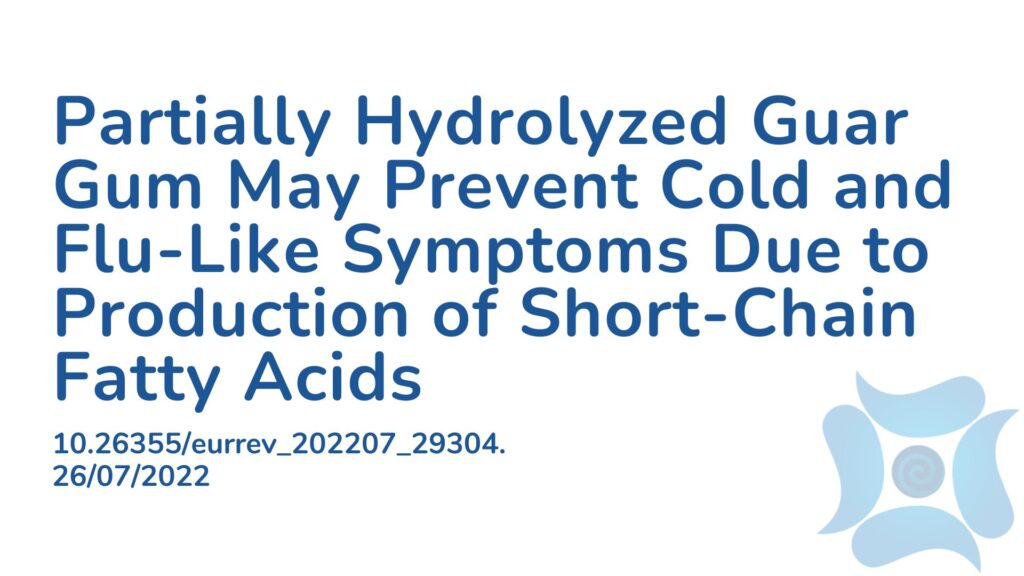Summary:
Partially hydrolyzed guar gum (PHGG) is a soluble fibre that increases the production of beneficial bacteria in the gastrointestinal tract and helps product short-chain fatty acids (SCFA). The production of SCFAs is known to maintain the intestinal barrier, protect the immune system and prevent infections. This paper is a randomized placebo-controlled double blinded study that looks at the effect of continuous ingestion of PHGG for a 12 week period and whether this impacts the development of cold and flu symptoms such as a runny nose, sore throat, cough, general malaise, fever, constipation and diarrhea. The symptoms were tracked using a participant diary. The levels of SCFAs in the stool and blood were measured at the start of the study, as well as at 6 and 12 weeks. The number of days that participants noted no symptoms was significantly larger in the group consuming PHGG than in the placebo group. There was also a significantly lower severity of cold-like symptoms amongst the PHGG group. The results of this study suggest that intake of PHGG may support the immune system and halt the development of cold and flu like symptoms via the production of SCFAs.
Abstract:
Objective: Partially hydrolyzed guar gum (PHGG), a water-soluble dietary fiber produced by the controlled partial enzymatic hydrolysis of guar gum beans, has various physiological roles. PHGG is expected to influence the immune function and prevent infections. The objective of this study was to examine the effect of continuous ingestion of PHGG for 12 weeks on the development of cold-like symptoms. Patients and methods: A placebo-controlled, double blind, randomized, parallel-group comparative study was conducted. 96 healthy Japanese adults received 5.2 g PHGG or placebo daily for 12 weeks. Cold-like symptoms were assessed based on patient diary, and the levels of short-chain fatty acids (SCFAs) in stool and blood immune markers at baseline and at weeks 6 and 12. Results: The cumulative number of “no symptoms” days for all symptoms was significantly larger in the PHGG than in the placebo group. The result of the analysis by severity of cold-like symptoms also showed significant differences, with the PHGG group having a lower severity of cold-like symptoms. Propionic acid at weeks 6 and 12 and n-butyric acid and total SCFAs at week 12 were significantly higher in the PHGG than in the placebo group. The Interferon-γ level was significantly lower at week 6 in the PHGG than in the placebo group. Conclusions: PHGG intake may affect immune function and suppress cold-like symptoms through the production of SCFAs in healthy adults.
Article Publication Date: 26/07/2022
DOI: 10.26355/eurrev_202207_29304.




